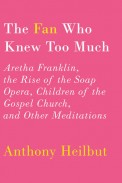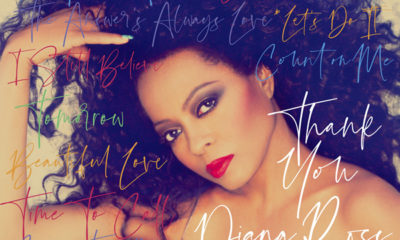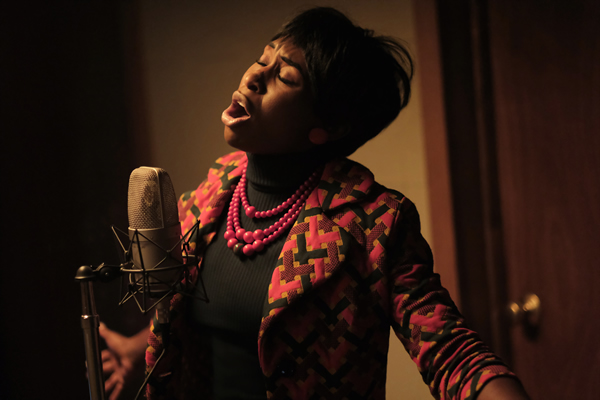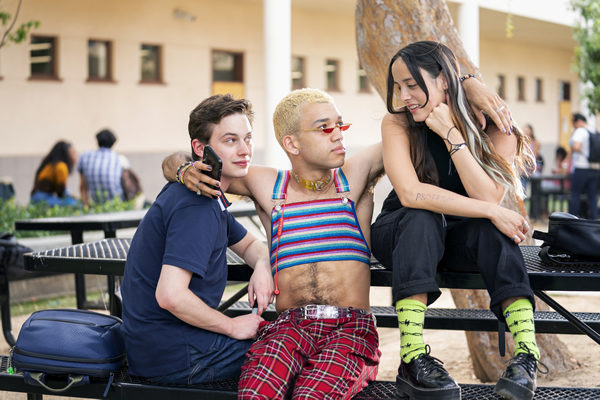Arts & Entertainment
Life-long ‘Fan’
Gay writer explores, Aretha, gays in black gospel and more
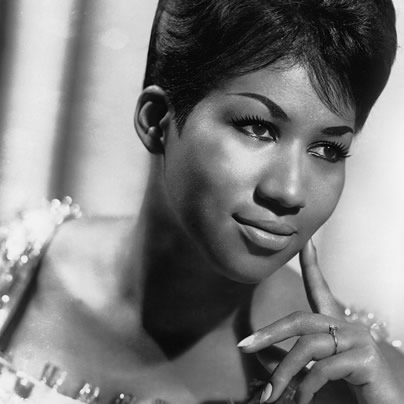
‘The Fan Who Knew Too Much’
By Anthony Heilbut
Knopf
$30
354 pages
anthonyheilbut.comAretha Franklin concert
Saturday, Nov. 17
7:30 p.m.
DAR Constitution Hall
1776 D Street, NW
$59.50-115.50
ticketmaster.com
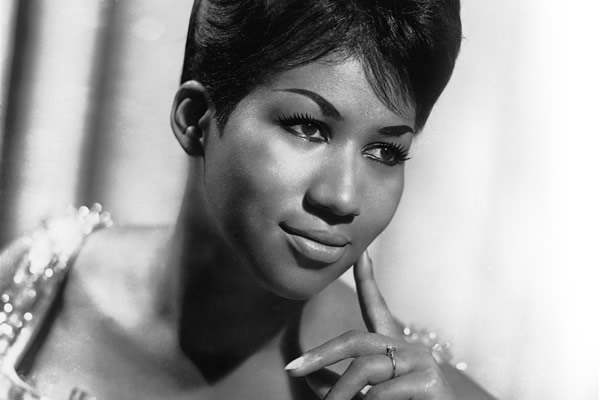
Vintage early ’60s promo still of Aretha Franklin during her Columbia Records years. (Photo courtesy of Sony Music Entertainment)
In a roundabout way, there’d be no rock music without gays and lesbians.
That’s the assertion of gay New York-based writer/historian Anthony Heilbut. In a sprawling, juicy tome that’s as gossipy and anecdotal as it is academic, he writes in “The Fan Who Knew Too Much” that there would have been no golden age of black gospel music (roughly1945-1960) without gays. He, and other rock historians also assert there’d be no mainstream rock and roll without classic black gospel influence.
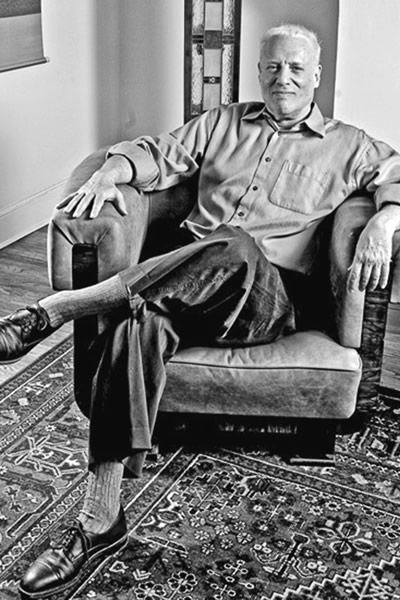
Gay author Anthony Heilbut says Franklin’s underrated work at Columbia Records is her best, contrary to popular opinion, which venerates her later Atlantic Records period. (Photo by Stephen Ladner)
“It means a lot to me that gay people know about this,” Heilbut says during a lengthy phone chat last week. “Gospel is really the most essential American music. Everyone sort of understands that black church singing, it’s really been the center of American singing since the 19th century. It follows through in jazz as well. It’s a great gay contribution.”
Though white and an atheist, as a teen, Heilbut went to hear the great R&B and soul acts of the day at the Apollo in New York. He was often the only white person in the room. He got a heads up from the ushers.
“I think they kind of took pity on this lone white boy,” he says. “They said, if you dig this, you ain’t heard nothin’ yet, the gospel shows are so much better. The showmanship, the vocalism. I came to know almost all the singers and became absolutely enthralled. They were so much more dynamic than their secular counterparts. You just cannot imagine rock and roll and R&B without the influence of these singers.”
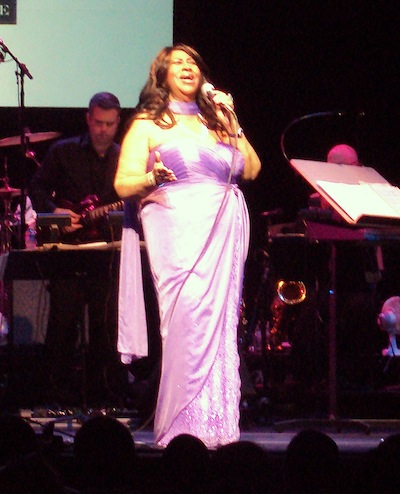
Aretha in concert at Wolf Trap, summer 2011, the last time she played the D.C. market. (Blade file photo by Joey DiGuglielmo)
Heilbut’s book, out earlier this year, is a collection of lengthy essays. Subtitled “Aretha Franklin, the Rise of the Soap Opera, Children of the Gospel Church and Other Meditations,” it includes a lengthy essay on how many black gospel legends — figures like James Cleveland, Clara Ward and others were either gay, lesbian or bi. In the essay “Aretha: How She Got Over” he explores how the soul legend — in town this weekend for a concert at DAR Constitution Hall — integrated the styles of the gospel legends she admired as a teen into the hit secular records she later recorded at Columbia and Atlantic. Though Franklin’s gospel roots are well known, Heilbut extrapolates the richness of those influences in unprecedented ways.
Other essays explore writer Thomas Mann (“The Magic Mountain”), the phenomenon of the male soprano and late soap opera maven Irna Phillips.
One senses, however, that despite Heilbut’s many interests and decades — he’s 71 — of following the careers of many, his heart is most deeply rooted in the gospel music of his youth. He eventually produced records for some of his favorites and writes and shares movingly of not only their great talent, but the hypocrisy with which the church has dealt with — often with scorn and outright condemnation — the contributions of its gay musicians.
Typical of many of the “old school” black gospel establishment, Heilbut quotes the legendary Shirley Caesar as “beseeching the ‘sissies and bull daggers’ to ‘come up and be saved,’ and warning that homosexuals were ‘stealing our children.’”
More analysis than biography, though, Heilbut illustrates how a lifetime of following a singer or musical phenomenon can result in an uncanny insight that the subjects themselves are often loathe to discuss — Franklin, as journalists and long-time fans know, is famously prickly and evasive on many topics.
For the record, Heilbut says Franklin and her legendary father, Rev. C.L. Franklin who became a mid-century legend as pastor of Detroit’s New Bethel Baptist Church — were way more accepting of gays than many others in the era.
Heilbut says Franklin, though not as vocal as some, has made her gay support known in several ways — from singing at a recent same-sex wedding to inviting gay-welcoming clergy (Bishop Carlton Pearson) to comment during a Whitney Houston tribute she hosted during a concert at Radio City Music Hall while Houston’s mother, Cissy, stuck with old school, anti-gay leaders (TD Jakes, Donnie McClurkin) at her daughter’s funeral.
“Aretha does these little things without really saying a word,” Heilbut says.

Team DC, the umbrella organization for LGBTQ-friendly sports teams and leagues in the D.C. area, held its annual Night of Champions Awards Gala on Saturday, April 20 at the Hilton National Mall. The organization gave out scholarships to area LGBTQ student athletes as well as awards to the Different Drummers, Kelly Laczko of Duplex Diner, Stacy Smith of the Edmund Burke School, Bryan Frank of Triout, JC Adams of DCG Basketball and the DC Gay Flag Football League.
(Washington Blade photos by Michael Key)




















The 2024 National Cannabis Festival was held at the Fields at RFK Stadium on April 19-20.
(Washington Blade photos by Michael Key)
















Covering the @NatlCannaFest at RFK Stadium for @WashBlade . Stop by the LGBTQ+ booth and pick up a paper if you are here. pic.twitter.com/is7hnsaPns
— Michael Patrick Key (@MichaelKeyWB) April 20, 2024
Theater
‘Amm(i)gone’ explores family, queerness, and faith
A ‘fully autobiographical’ work from out artist Adil Mansoor

‘Amm(i)gone’
Thorough May 12
Woolly Mammoth Theatre
641 D St., N.W.
$60-$70
Woollymammoth.net
“Fully and utterly autobiographical.” That’s how Adil Mansoor describes “Amm(i)gone,” his one-man work currently playing at Woolly Mammoth Theatre.
Both created and performed by out artist Mansoor, it’s his story about inviting his Pakistani mother to translate Sophocles’s Greek tragedy “Antigone” into Urdu. Throughout the journey, there’s an exploration of family, queerness, and faith,as well as references to teachings from the Quran, and audio conversations with his Muslim mother.
Mansoor, 38, grew up in the suburbs of Chicago and is now based in Pittsburgh where he’s a busy theater maker. He’s also the founding member of Pittsburgh’s Hatch Arts Collective and the former artistic director of Dreams of Hope, an LGBTQ youth arts organization.
WASHINGTON BLADE: What spurred you to create “Amm(i)gone”?
ADIL MANSOOR: I was reading a translation of “Antigone” a few years back and found myself emotionally overwhelmed. A Theban princess buries her brother knowing it will cost her, her own life. It’s about a person for whom all aspirations are in the afterlife. And what does that do to the living when all of your hopes and dreams have to be reserved for the afterlife?
I found grant funding to pay my mom to do the translation. I wanted to engage in learning. I wanted to share theater but especially this ancient tragedy. My mother appreciated the characters were struggling between loving one another and their beliefs.
BLADE: Are you more director than actor?
MANSOOR: I’m primarily a director with an MFA in directing from Carnegie Mellon. I wrote, directed, and performed in this show, and had been working on it for four years. I’ve done different versions including Zoom. Woolly’s is a new production with the same team who’ve been involved since the beginning.
I love solo performance. I’ve produced and now teach solo performance and believe in its power. And I definitely lean toward “performance” and I haven’t “acted” since I was in college. I feel good on stage. I was a tour guide and do a lot of public speaking. I enjoy the attention.
BLADE: Describe your mom.
MANSOOR: My mom is a wonderfully devout Muslim, single mother, social worker who discovered my queerness on Google. And she prays for me.
She and I are similar, the way we look at things, the way we laugh. But different too. And those are among the questions I ask in this show. Our relationship is both beautiful and complicated.
BLADE: So, you weren’t exactly hiding your sexuality?
MANSOOR: In my mid-20s, I took time to talk with friends about our being queer with relation to our careers. My sexuality is essential to the work. As the artistic director at Dreams of Hope, part of the work was to model what it means to be public. If I’m in a room with queer and trans teenagers, part of what I’m doing is modeling queer adulthood. The way they see me in the world is part of what I’m putting out there. And I want that to be expansive and full.
So much of my work involves fundraising and being a face in schools. Being out is about making safe space for queer young folks.
BLADE: Have you encountered much Islamophobia?
MANSOOR: When 9/11 happened, I was a sophomore in high school, so yes. I faced a lot then and now. I’ve been egged on the street in the last four months. I see it in the classroom. It shows up in all sorts of ways.
BLADE: What prompted you to lead your creative life in Pittsburgh?
MANSOOR: I’ve been here for 14 years. I breathe with ease in Pittsburgh. The hills and the valleys and the rust of the city do something to me. It’s beautiful, it’ affordable, and there is support for local artists. There’s a lot of opportunity.
Still, the plan was to move to New York in September of 2020 but that was cancelled. Then the pandemic showed me that I could live in Pittsburgh and still have a nationally viable career.
BLADE: What are you trying to achieve with “Amm(i)gone”?
MANSOOR: What I’m sharing in the show is so very specific but I hear people from other backgrounds say I totally see my mom in that. My partner is Catholic and we share so much in relation to this.
I hope the work is embracing the fullness of queerness and how means so many things. And I hope the show makes audiences want to call their parents or squeeze their partners.

